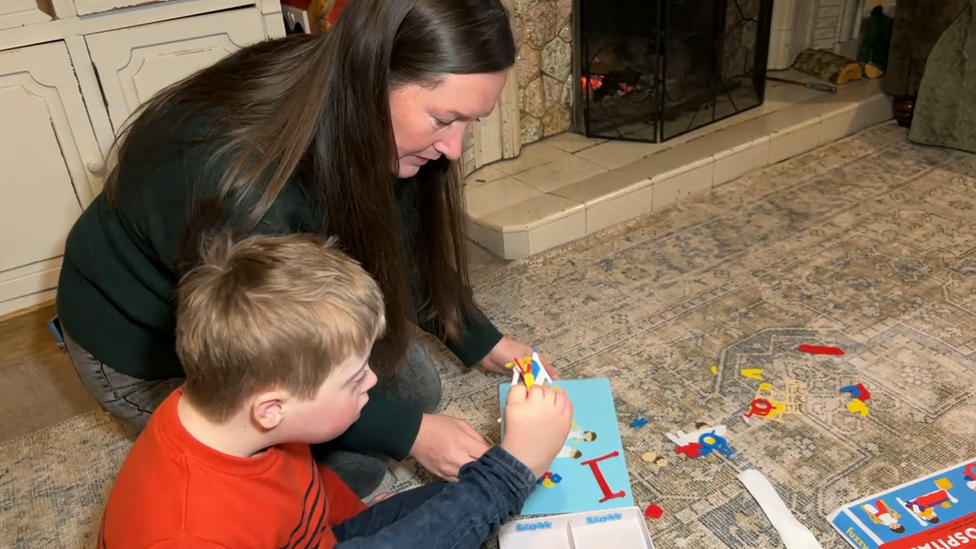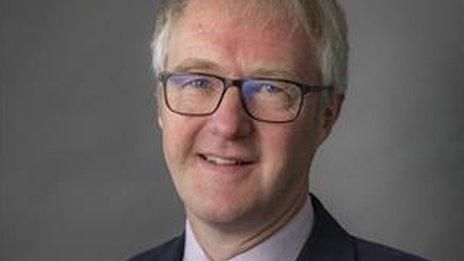Cumbria: Rise in special educational needs puts pressure on councils
- Published

Experts are warning authorities could be pushed to the brink of bankruptcy without more support
Councils are facing multimillion-pound deficits after a steep rise in the number of pupils needing extra educational support.
Local authorities in Cumbria said the number of children and young people assigned a document setting out special educational needs has increased by more than 50%.
Councillors have called for extra funding from government.
The Department for Education said they were "supporting local authorities".
The number of children and young people in Cumbria with an Education, Health and Care Plan (EHCP) rose from 2,929 to 4,456 in the five years to March 2023, according to council papers, external.
Cristina Bowman, who lives near Penrith, has two sons with EHCPs.
"If you get those children at an early age and educate them in the way that they need to be educated, in adulthood they're going to be able to support themselves a lot better," she said.

Christina Bowman's son Max, six, needs extra support with his education, including speech therapy
The government gives local authorities grants to fund schools, including money to support pupils with additional needs.
But the cost of provision in Cumbria is greater than the amount councils currently receive from government, meaning Cumberland Council and Westmorland and Furness Council each expect to have a deficit of more than £14m by April this year.
Elaine Lynch, the Labour executive member for life-long learning and development at Cumberland Council, said the government should "look at providing more funding".
'Perfect storm'
Dr William Burns, from the Chartered Institute of Public Finance and Accountancy, said three-quarters of councils in England were dealing with deficits of this kind.
"Local authorities and schools are getting better at identifying children with complex needs - so it's a good thing, in one regard," he explained.
"However, with this perfect storm of rising costs, inflation and increasing demand, that's pushing these deficits up."
Councils have to set a balanced revenue budget, but can register a ring-fenced deficit against school grants until 2026.
Mr Burns warned if councils are forced to pay off the overspend from their general funds, it could push well-performing authorities "to the brink of effective bankruptcy".
'More to do'
A Department for Education spokesperson said: "Councils are responsible for providing the right support for children in their areas, but we know there is more to do - which is why we are urgently delivering against our plans published earlier this year to create a fairer special educational needs and alternative provision system."

Follow BBC Cumbria on Facebook, external, X (formerly Twitter), , externaland Instagram, external. Send your story ideas to northeastandcumbria@bbc.co.uk, external.
Related topics
- Published19 November 2023

- Published10 November 2023

- Published15 March 2023
